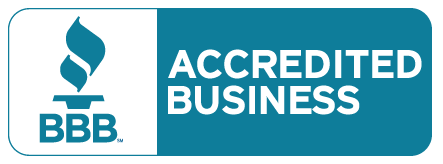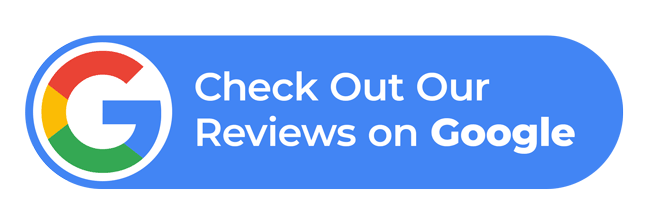
The legal industry—especially personal injury law—is one of the most competitive fields in digital marketing, with firms fighting to represent cases in their specific practice areas. Every day, thousands of lawyers compete for visibility in the same search results. If your practice isn’t showing up when potential clients search for personal injury lawyers in their area, you’re likely losing business to firms that do. That’s where SEO makes a difference.
Search engine optimization (SEO) for personal injury lawyers isn’t just about where your site ranks—it’s about positioning your firm as a credible, trustworthy choice in the eyes of both Google and potential clients. Authority in Google Search is built on several factors: how people find your site (organically, through paid ads, GMB, or email), who links to your site, the relevance of your content, and the user experience. When executed well, SEO leads to sustainable growth, stronger lead pipelines, and better returns on marketing investment.
The Competitiveness for Personal Injury Legal Industry
Unlike other industries, personal injury law revolves around a small set of high-value keywords. Terms like car accident lawyer, slip and fall attorney, and personal injury law firm are highly searched—but they’re also highly competitive. Established law practices are investing heavily in both traditional and digital marketing tactics. Paid ads in this space can cost hundreds per click, and without a strong organic presence, even skilled firms may struggle to stay visible online.
Standing Out With Digital Marketing
To rise above the noise, law firms need more than a basic website or traditional ads. Digital marketingfor personal injury lawyers requires strategic execution—from optimized site content and local SEO to backlink acquisition and schema markup. These elements help Google understand who you are, where you’re located, and why your firm is relevant to people searching for legal representation.
SEO is the foundation. But when paired with digital advertising and content marketing, it becomes a powerful system for driving brand visibility and client acquisition.
Because of the time, strategy, and ongoing optimization involved, most legal practices choose to outsource SEO to a dedicated agency rather than manage it in-house. Find out how Funnel Boost Media can support your firm with proven SEO strategies built specifically for personal injury law.
What Is Legal SEO?
Legal SEO is the process of optimizing your website and online presence to rank higher in search results for law-related queries. For personal injury firms, this includes:
- Targeting high-intent keywords like “truck accident lawyer San Antonio”
- Creating detailed practice area pages
- Publishing informative blog content
- Earning links from relevant legal or local sites
- Optimizing Google Business Profile and other local citations
It’s not a one-time setup—it’s a long-term continuous strategy that evolves with your market, competitors, and search engine algorithms.


Best Practices for SEO for Personal Injury Practices
To compete effectively in search, firms should follow SEO best practices specific to the legal field:
Target Long-Tail and Local Keywords
Include precise keyword phrases like motorcycle injury lawyer in Houston or wrongful death attorney TX. These tend to have less competition and higher conversion rates.
Optimize for Mobile and Speed
Most potential clients search on mobile. A fast, mobile-responsive website not only improves user experience but also supports ranking performance.
Build Authority With Content and Backlinks
Google ranks sites it trusts. High-quality content paired with authoritative backlinks from legal directories, industry blogs, or news sites signals relevance and credibility.
Use Legal Schema Markup
Schema helps Google understand your site better and can increase visibility through rich results (e.g., star ratings, FAQ previews).
How SEO Builds Credibility and Trust
When your website consistently appears on the first page of Google, it sends a strong signal of legitimacy. Prospects are more likely to click on firms they perceive as established, authoritative, and visible—often before reading a bio or making a call. The more engagement your site receives in search results, the more likely Google is to view your firm as relevant compared to competitors who aren’t earning those same clicks.
Getting to that first page doesn’t happen overnight. Your practice earns that trust over time by demonstrating value through helpful content, consistent activity, and visibility across a network of keywords—with varying levels of difficulty depending on your competitors and existing site authority. Google begins to view your site as a reliable, credible source—and so do the clients who find you there.
Cost-Effectiveness of Investing in SEO
Compared to traditional advertising or high-cost PPC campaigns, SEO offers long-term returns without ongoing spend for each lead. Once your content ranks, it continues to generate traffic and leads organically.
Firms working with a dedicated SEO agency like Funnel Boost Media benefit from strategic oversight, technical expertise, and consistent reporting. Rather than guessing, you’re investing in a proven process that aligns with your business goals.
Why SEO Is a Necessary Strategy for Practice Growth
Personal injury law depends on inbound demand. Clients are often searching for legal help immediately after an accident. SEO connects your firm to that need by placing your services in front of high-intent searchers at the right time. As your website becomes more optimized, it serves as a consistent source of qualified leads and long-term visibility.
Without SEO, law firms often rely on costly and short-lived marketing efforts. A strong SEO strategy builds lasting digital traction that supports real business growth.
Whether you’re launching a new firm or expanding an established practice, visibility in search is essential. Funnel Boost Media helps personal injury law firms develop targeted SEO strategies that increase authority, attract qualified leads, and reduce reliance on paid advertising.





